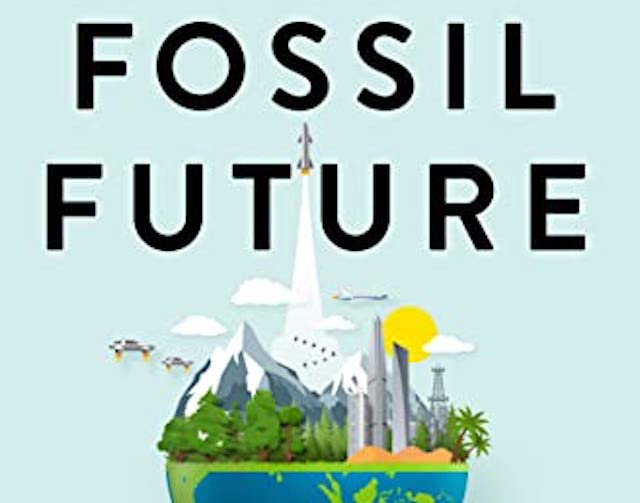Corporations’ ability to raise financing – and to create goods and services and returns on their shareholders’ investment – increasingly depends on their ESG (environment, social, and governance) credentials. Assets under management (AUM) classified as meeting the ESG criteria have grown from $6.5 trillion in 2006 to $80 trillion in 2020.
The popularity of ESG investing is based on investors’ view that it is a win-win solution that mitigates against catastrophic climate change while creating returns on shareholders’ investment at the same time. Institutional investors, such as pension funds, insurance companies, and asset management firms expect companies whose shares they hold to demonstrate ESG credentials such as carbon neutrality, or net-zero emissions, and retail investors are eager to buy products such as ESG index funds.
The asset managers, such as the majors BlackRock, Vanguard, and State Street Group, own significant shares in many companies and enforce their expectations by voting against policies that don’t meet ESG criteria. They can also divest of companies, such as fossil fuel producers that contribute to CO2 emissions.
Under such pressure, corporate leaders have started to pursue the ESG criteria to attract and keep investors. Regulations are now further compelling them to do so. The European Union has already mandated corporations to report their ESG risks and mitigation, and the SEC is soon to follow.
Hardly anybody has dared to push back on ESG investing, besides Elon Musk who has called ESG a scam. This is not surprising given that most media tell us we are experiencing catastrophic climate change which is our own making—and that the only way to mitigate it is through carbon neutrality by replacing fossil fuels with renewable energy.
But we do have factual moral grounds for pushing back on ESG investing.
Energy expert and author Alex Epstein provides them in his new book, Fossil Future: Why Global Human Flourishing Requires More Oil, Coal, and Natural Gas—Not Less. In explaining his framework for thinking about energy, Epstein highlights two facts that challenge the assumption of catastrophic climate change – and the basis of ESG investing – that the media never report.
First, according to the UN International Panel of Climate Change (IPCC), severe climate events have not increased in number and magnitude in the last 170 years when the CO2 emissions have increased.
Second, deaths from severe climate events have declined by 98% in the last 100 years (based on data from Scripps Institution of Oceanography, World Bank, and other sources).
What these facts show is that despite the gradual increase of CO2 in the atmosphere and the associated increase of the global temperature by less than 1 degree Celsius over 170 years, we are not experiencing a climate catastrophe.
These facts also show that we have a tremendous ability to adapt to changing climate and to protect ourselves against sever climate events, such as floods, droughts, and hurricanes. We do adapt by designing dams, irrigation systems, and stronger structures, the building and operation of which requires affordable, reliable energy. The fossil fuels are the primary source of such energy today. Using ESG investing to replace them harms both people and the environment, as there are no readily available alternatives for the 80% of the world’s energy that currently comes from oil, coal, and natural gas.
Consider the global energy crisis we are now experiencing. Its direct cause is the cutting of investment in the fossil fuels in countries such as the United States and Canada and the dangerous dependence on the supply of oil and natural gas from Russia and other autocratic countries. The short supply of oil and gas has made it harder, and more expensive, to produce the goods and services we need and contributed to shortages of goods, including food, and to price inflation.
Lack of affordable energy has a negative impact also on our environment. Of the over three billion people in the world who lack such energy, 2.4 billion burn mostly biomass and/or practice inefficient subsistence farming, which contributes to air pollution and soil erosion.
This evidence demonstrates that the campaign for carbon neutrality is destructive – which is the reason we should reject ESG investing.
Not only do we have Alex Epstein’s pro-human, fact-based moral argument for rejecting the campaign to abandon fossil fuels and the ESG investing that facilitates it – we soon will also have an alternative to ESG investing. Vivek Ramaswany, the billionaire entrepreneur, has launched a new asset management firm, Strive Asset Management, in response to the major asset managers’ push for ESG policies.
Instead of the ESG criteria, Strive uses excellence as the basis of investment. With backing from entrepreneurs and venture capitalists such as PayPal co-founder Peter Thiel and hedge fund manager Bill Ackman, Strive’s first investment product will be available later this year. It will offer us an opportunity to start reversing the ESG investment trend – for the benefit of human flourishing in an improved environment.
Read original article here…
Jaana Woiceshyn teaches business ethics and competitive strategy at the Haskayne School of Business, University of Calgary, Canada. She has lectured and conducted seminars on business ethics to undergraduate, MBA and Executive MBA students, and to various corporate audiences for over 20 years both in Canada and abroad. Before earning her Ph.D. from the Wharton School of Business, University of Pennsylvania, she helped turn around a small business in Finland and worked for a consulting firm in Canada. Jaana’s research on technological change and innovation, value creation by business, executive decision-making, and business ethics has been published in various academic and professional journals and books. “How to Be Profitable and Moral” is her first solo-authored book.
Visit Dr. Woiceshyn’s archive here…



